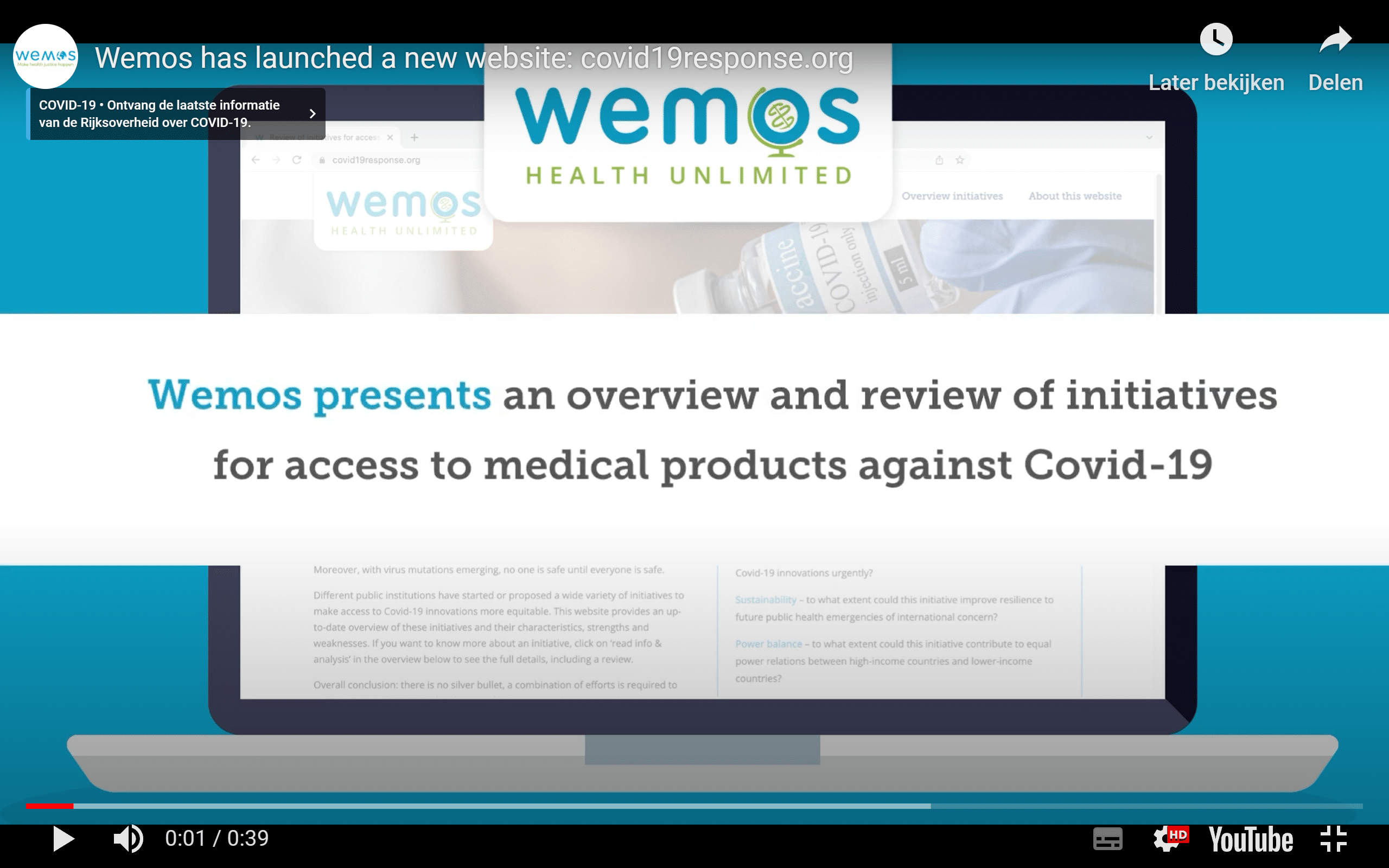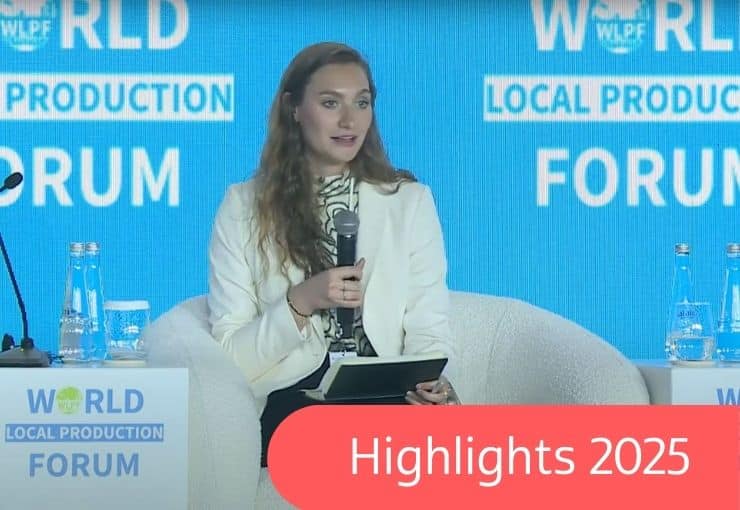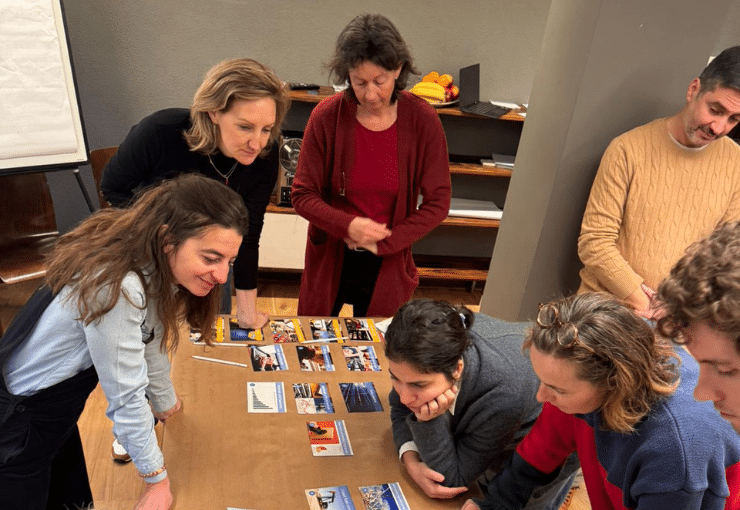Increasing self-sufficiency
According to Wemos, achieving an equitable and effective Covid-19 response requires initiatives that increase the range of producers of Covid-19 innovations worldwide and contribute to self-sufficiency of low- and middle-income countries. This breaks dependencies on high-income countries and a few leading pharmaceutical companies, stimulates solutions for local context, and brings prices down. Investing in expanding local production capacity in low- and middle-income countries also improves resilience to future public health emergencies of local and international concern.
Wemos therefore calls upon policy makers around the world to support initiatives such as the Covid-19 Technology Access Pool (C-TAP) and Medicines Patent Pool (MPP) that facilitate the sharing of know-how and technology needed for production. Also the TRIPS Waiver proposal by India and South Africa requires full support, as it would allow qualified pharmaceutical companies other than the right holders to produce Covid-19 innovations. The South African mRNA hub is currently making great strides in developing its own mRNA vaccine. As it seeks to produce and distribute vaccines locally and provide capacity building in the region, the mRNA hub model presents a structural solution to current inequities in access with lasting effects beyond this pandemic.
Initiatives aiming to increase the funding for pandemic preparedness and response, including expansion of local manufacturing capacity, such as the G20’s Global Health Threats Fund and European Commission’s HERA, should champion democratic governance and attach conditions to their funding to ensure the sharing of know-how and technology needed for production and to foster fair pricing. Unfortunately, as the overview on covid19response.org shows, this is not yet a given.
For short-term relief, donating vaccines to low- and middle-income countries through COVAX should be intensified. Though, this cannot be considered a long-term solution as it perpetuates the dependence of low- and middle-income countries on high-income countries.
For the complete overview of initiatives and their reviews, please visit covid19response.org.
For more information about the context of the website and the methodology used for reviewing the initiatives, please visit covid19response.org/about.
The information on the website will be updated regularly, and more initiatives will be added in the (near) future.
Webinar
On Wednesday 2 March 2022, we organised a webinar during which we will:
- explain the website and the principles we used to assess the initiatives,
- present the main conclusions and policy recommendations for an equitable and effective Covid-19 response, and
- aim to answer all your questions.





